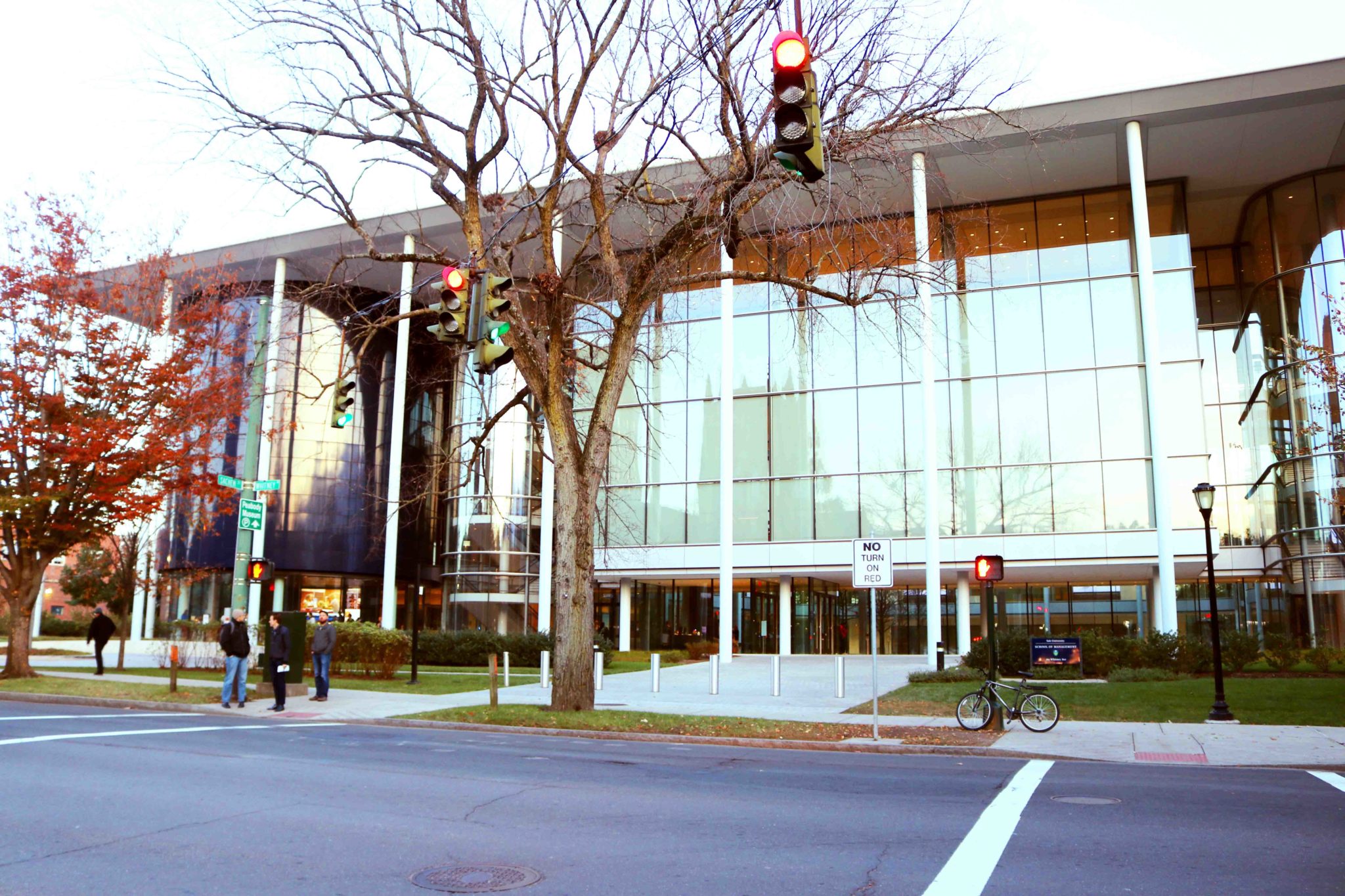
Several eminent economists discussed the impact of globalization, technological advancement and politics on the global economy during the opening event of the Economic Development Symposium held at the Yale School of Management on Tuesday.
The symposium is an annual event organized by the Economic Development Club at the SOM that brings together scholars, action agents and opinion leaders to debate and provide actionable recommendations on pressing economic development issues. This year’s theme, “Strengthening Economic Development Systems to Adapt to Emerging Challenges and Threats,” focuses on strategies for prudent, resilient and sustainable economic development in developed and developing countries alike and how business, government and communities can be leveraged toward that end.
During his welcome address at the start of the event, Acting SOM Dean Anjani Jain said he was glad to support student-run events such as the symposium, which bridges the gap between curricula and “what students need to know.” After the welcome remarks, Kaushik Basu, former chief economist of the World Bank and a professor of international studies at Cornell, delivered his keynote speech, focusing on the state of the global economy and the implications of globalization for developed countries including the United States.
“Two things in technology are changing the world landscape: labor-saving technology and labor-linking technology,” Basu said. The former includes artificial intelligence and robotics, and the latter includes outsourcing and communications.
Basu also touched on the rise of political and economic protectionism across the world, arguing that as per historical precedent, protectionism and closed economies are bigger worries for the developed countries that indulge in them than for those countries that export labor and capital. His comments come in the wake of criticism of President Donald Trump’s protectionist policy initiatives and his emphasis on an “America First” perspective during last month’s World Economic Forum in Davos, Switzerland.
Throughout the event, Basu stressed the need for concerted global coordination in a world with “an increasingly unified economy but 200 central banks” in order to solve the most pressing issues of our time, including income inequality and poverty.
Following Basu’s opening remarks, Nancy Birdsall GRD ’79, senior fellow and president emeritus at the Center for Global Development; Homi Kharas, interim vice president and director at the Brookings Institution; William Cline GRD ’69, senior fellow at the Peterson Institute of International Economics; and Basu himself participated in a panel discussion moderated by Rakesh Mohan, senior fellow at the Yale Jackson Institute for Global Affairs.
When Mohan steered the conversation toward developing economies and to Sub-Saharan Africa in particular, Birdsall said she would advise the leaders of African countries to form close trade ties and other economic linkages with one another and to focus on developing the agro-production sector. While Basu was sceptical that agricultural production itself could drive rapid economic growth, Kharas concurred with Birdsall, pointing to East Asian success.
“When you look at yields in Africa, they are one-tenth the size of yields in China,” Kharas said. “Everybody thinks about East Asia as being a manufacturing powerhouse, [but] I think there’s a real story about Asian agriculture that is not told, which is the source of the savings that empowered Asian manufacture.”
Mohan concluded the panel on a positive note about the possibility of alleviating poverty within the century and the massive economic progress and development engendered by the rise of women in the global workforce.
In interviews with the News after the panel, the economists discussed what they believed would be the greatest social and economic challenges facing the world in the coming decades and the fundamental strategic changes they would recommend to better address them.
Basu highlighted income inequality as a growing global threat that can not be resolved without international coordination, while Cline said that dealing with climate change is of utmost importance and that there should be a charge on carbon emissions, which would also become a natural source of revenue for countries like the United States. Kharas suggested that social and economic sustainability should be the primary areas of focus, inextricable from one another. And Birdsall said that the world now faces the ideological challenge of reconciling the need for global governance with the ideals of democratic nationhood.
Asked what advice he would give Yalies who are aspiring policymakers and researchers, Cline stressed the importance of understanding the basics of economics and politics and Birdsall recommended gaining comprehensive, in-depth experience in specific areas.
“Just do it,” Kharas added.
The symposium was organized by SOM students, who weighed in on their preparations for the event and on future programming.
“Many of our classmates were deeply concerned [about] the recent political environment and were curious how it would affect the development of the world,” said Frederick Kim SOM ’18, co-chair of the Economic Development Club. “To help understand how international development is changing in response, we invited speakers with in-depth experience in the field.”
According to Kim, the club began preparing for the symposium last spring. Around 150 people registered for the symposium this year, of which approximately 110 are Yale students.
The symposium will continue for the next two Tuesdays this February, with sessions on community development and infrastructure development.
Saumya Malhotra | saumya.malhotra@yale.edu







